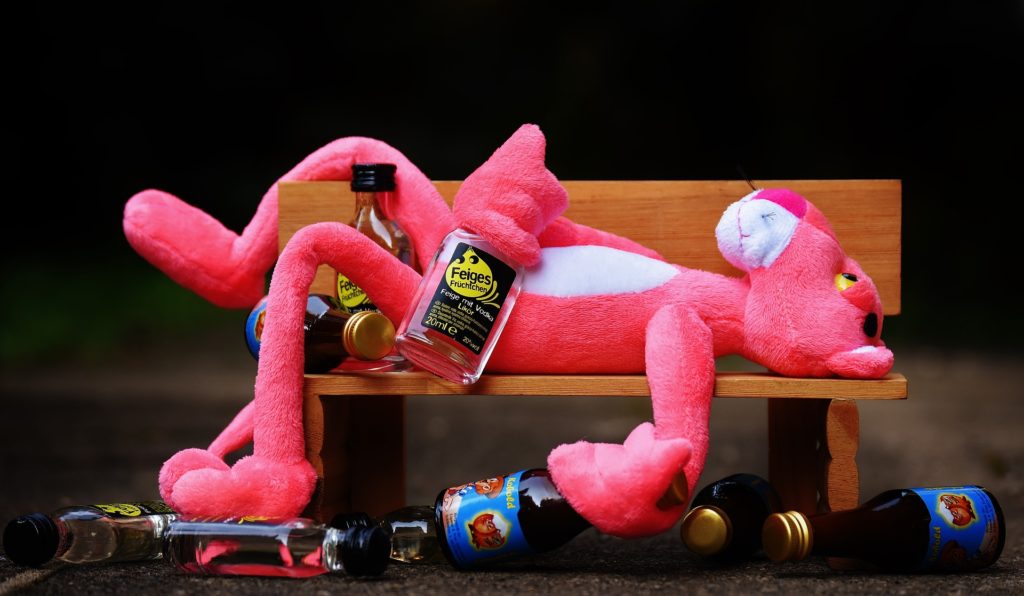
The original transcript of the dialogue between Me (M) and the Enlightened One (E).
M:
What’s the myth now? You mean to say that we are not in control of our own lives?
E:
Are you? Really?
Do you control the millions of bacteria in your body?
You are probably not even aware of them.
Then why should you think that you are responsible for an equally random set of processes that occur within your brains?
And why should you take the ownership of every result that is coincidentally a byproduct of that very process?
M:
So you mean to say that almost everything is outside our control?
E:
That’s your wording.
You need to understand that most of the time you don’t control what happens to you in life, your only control is how you choose to respond.
M:
What do you mean?
E:
Can you recall the incident when a friend of yours was really mean to you last time? And it did really hurt you big time?
First of all what they did wasn’t nice of them. However, there wasn’t anything you could do about it.
If someone wants to be mean, they’re going to be mean anyway. But after they were mean, you had a choice.
Remember?
You had to decide whether you were going to retaliate.
Whether you were going to hit him right away or wait for an opportune moment to teach him a lesson.
Whether you were going to give him the benefit of doubt and forget about the entire episode or stay mad and hurt about it.
The fact that you decided to let it go might seem a wise choice in the hindsight.
M:
But isn’t it some kind of escapism? Where are you more inclined to diffusing the situation rather than taking it head on?
E:
I would like to share with you a little prayer commonly known as serenity prayer. It was a prayer authored by the American theologian Reinhold Niebuhr (1892–1971).
“God, grant me the serenity to accept the things I cannot change, Courage to change the things I can, And wisdom to know the difference.”
Serenity means peace and acceptance of all those things that don’t get influenced by us. Just keeping a candid account of all the amount of energy that is spent by us on things beyond our control would help us immensely in putting a lot of things in proper perspective.
Courage is bravery: it is something that you still do even though you’re s**t scared because you know it’s the right thing to do.
Wisdom: It’s the clarity to see things clearly beyond the commonly accepted illusion. Have you ever noticed your grandparents, how they know just what to say or do in every situation? It’s just so intuitive to them. It’s mostly their wisdom at work.
What you are calling escapism is nothing but radical acceptance to live a life of pragmatism.
M:
You mean to say that knowing the difference between what’s in our control and what isn’t is a sure path to attain peace and serenity in our life.
E:
Just give it a thought.
And apart from bringing the much-needed peace and serenity, I’d say that by following this maxim you become really powerful.
M:
Why? And How?
E:
Because you get to choose how you respond to everything.
You get to choose whether you’re mean or nice back to someone who was mean to you.
You get to choose the state of your being and in the process, you become the best version of yourself.
M:
Really?
E:
Once you start applying this principle in your daily life, it equips you to deal with every circumstance in life.
Whether you are slogging for a promotion, or you are in relationships, this attitude will make a world of difference in your life.
Believe it or not, but we tend to imprison ourselves when we choose to make our happiness depend on things beyond our control, whether those things are controlled by other people, the weather, the traffic, the stock market, or any other incident.
M:
Sounds pretty simple to me?
E:
Yes, it is. But one thing you got to remember that studying the ideas, theories, and arguments in principle may seem ridiculously easy. But applying them in every single decision, action, and reaction to events around us is very difficult.
In fact, it requires great discipline and years of rigorous practice to apply them to all our beliefs, value judgments, decisions, intentions, and actions.
M:
So how should we approach this?
E:
Imagine your life to be a giant screen. A movie in 3D is being played 24×7, and all the content of this daily movie show is shaped by the overall state of your own mind, perceived through sensory organs and vastly dependent on a variety of external circumstances.
Now can you explain me, how the screen on which this entire movie is played should ever be bothered by the content of this daily movie?
But invariably we get so emotionally invested in whatever is playing on the screen of our life that we tend to make the mistake of treating both the screen and the movie as one.
Let me know your thoughts, I’d love to hear them!?
Have an amazing weekend.